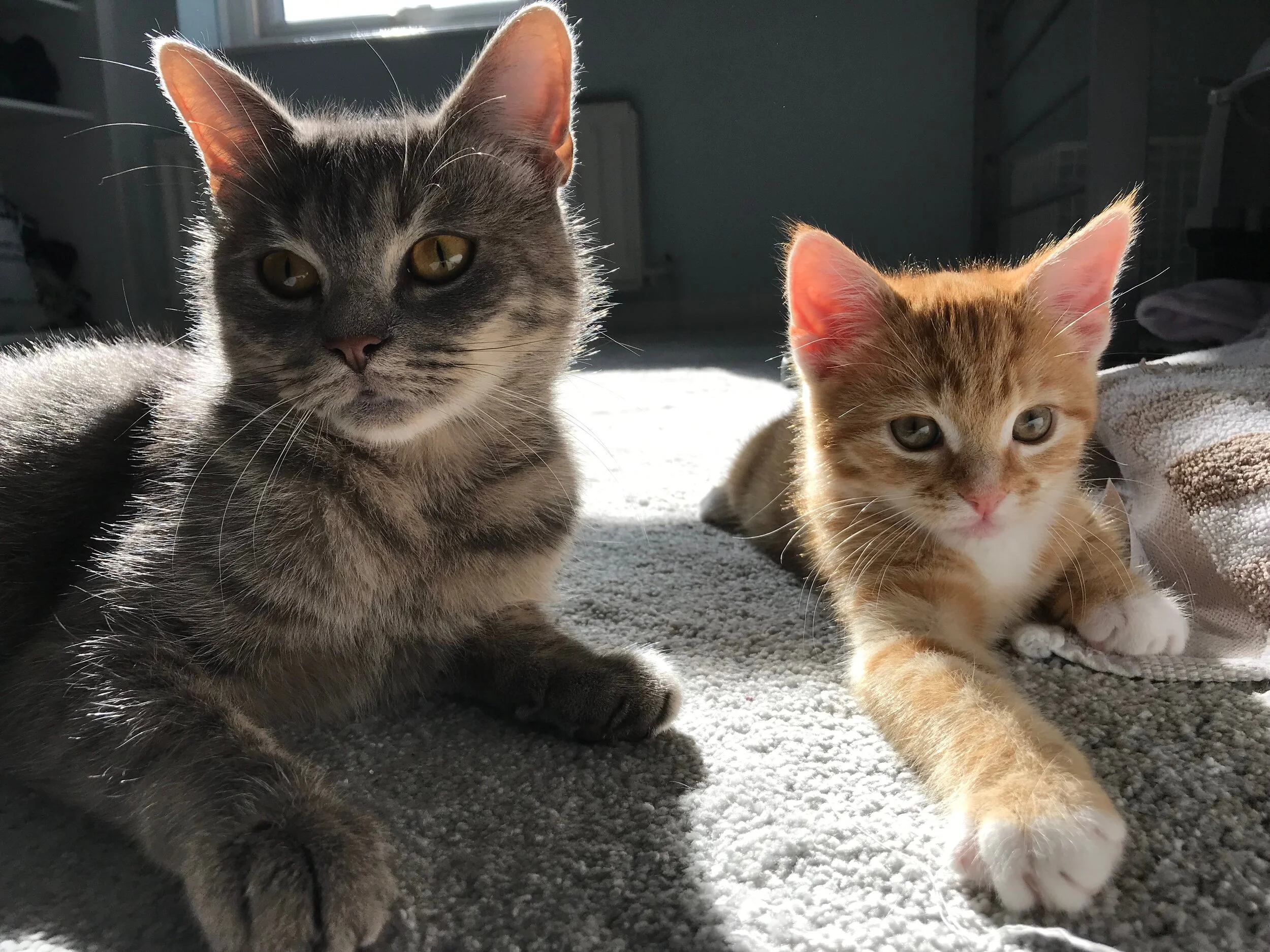Why Cats Can’t Be Vegans
8th October 2021 | Posted by The Team at Coquet Vets
(Photo Coquet Vets, 2021)
Cats are obligate carnivores; this means they must have meat in their diet to be healthy. Cats are not adapted to a vegan plant-based diet and their digestive systems are not designed to deal with vegan diets.
A vegan diet is lacking in a few components that are essential for cats:
Taurine
Taurine is an amino acid (these are building blocks for proteins), and it is only found in animal sources such as milk or meat - so is lacking in a vegan diet. Taurine is essential for cats and keeps their heart, vision, hearing, neurological, and immune systems healthy. Without taurine cats can develop a serious heart condition called dilated cardiomyopathy, where the walls of the heart become thin and weakened. This causes a back-flow of blood into the lungs and causes congestive heart failure, which can be fatal. Taurine deficiency may also lead to vision impairment or blindness as it degenerates the retina in the back of the eye.
Protein
Cats require a diet which has lots of high-quality, highly digestible proteins. They need a much higher level of protein in their diets than dogs. If a cat isn’t getting enough protein, they will lose muscle, have poor coat condition, and have an increased risk of infection as their immune system won’t be working at its most effective.
Vitamin A
A vegan cat would also be lacking in vitamin A, which is essential for normal bone growth in kittens and healthy eyes in adults. There are high concentrations of vitamin A in liver and fish liver oil.
Arachidonic Acid
Cats need an essential fatty acid in their diet called arachidonic acid, which is not found in a vegan diet. If this is not in their diet, they may develop skin issues including hair loss and itchiness. Most importantly they will also have problems with their platelets; this is the component of blood that makes it clot so they will have impaired wound healing.
Cats are not very good at digesting plant carbohydrates (which a vegan diet is high in). They do not get enough energy from them. A carnivore diet is calorie dense and provides your cat with the energy levels they need.
Overall, a vegan diet puts cats at lots of health risks that can be avoided by feeding an appropriate diet for the species. At Coquet Vets we supply Hills and Virbac Veterinary HPM (a veterinary specific brand), and there will be an option suitable for your cat’s age and health requirements.
If this article has raised any concerns, or you want more advice on what we recommend for a healthy diet for cats, contact us on 01665 252 250 or email us at Info@coquetvets.co.uk



